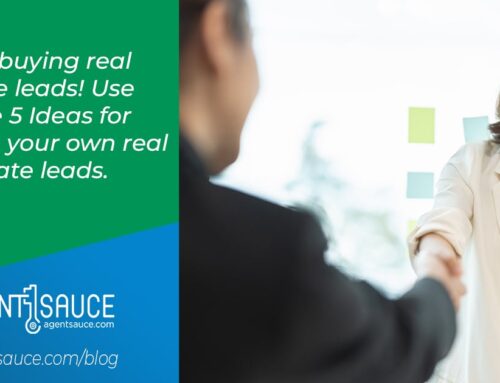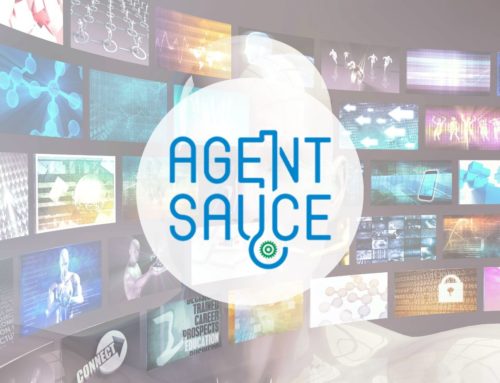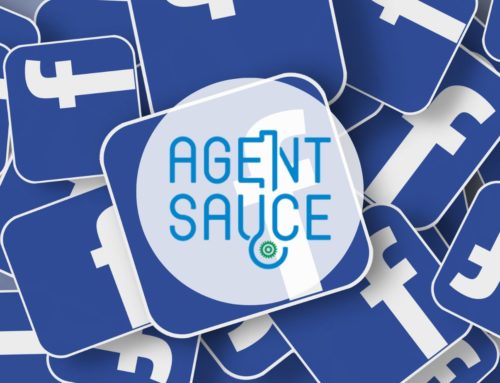We decided it would be a good idea to do a podcast on recommendations, testimonials and reviews, and how they can impact your real estate business being found online.
Real Estate Testimonials and Reviews Takeaways
- Get a Google My Business Page.
- Continuously ask for Testimonials and Reviews.
- Respond to Testimonials and Reviews.
- Find your testimonials and reviews links.
Real Estate Testimonials and Reviews Podcast Transcription
Adam Small: Hello, and welcome to the Real Estate Marketing Minute. I’m your host, Adam Small, and with me as always is Doug Karr.
Douglas Karr: Hello Sir.
Adam Small: Hey there Doug, how’re you doing today?
Douglas Karr: Fantastic.
Adam Small: Great. You and I were talking earlier about Facebook’s new feature, recommendations.
Douglas Karr: Yeah.
Adam Small: We kind of decided it’d be a good idea to do a podcast on recommendations, testimonials and reviews, and how that can impact your real estate being found online.
Douglas Karr: Yes.
Adam Small: So, let’s start right off with that. First of all, there are a lot of testimonials and reviews opportunities out there. Can you just name a few?
Douglas Karr: Yeah sure. Of course, Facebook business has it, Google my business has it, Yelp.
Adam Small: Right.
Douglas Karr: Angie’s List.
Douglas Karr: Home Advisor.
Douglas Karr: Yeah. There’s a plethora of them.
Adam Small: Okay, so how does that impact your visibility online? How do those testimonials and reviews impact your visibility and SEO?
Douglas Karr: Each testimonials and reviews site is obviously fighting for search as well, right?
Adam Small: Right.
Douglas Karr: So, if I was looking for a real estate agent in Indianapolis, there’s a lot of testimonials and reviews sites that want to win that term, because they want people to go through their site, then they can charge advertising and all of that stuff. But the fact is, is that you, as a real estate agent could win that term as well on your own. The hard part is, you have to have testimonials and reviews in order to do that.
Adam Small: Right.
Douglas Karr: I’ll give a perfect example. Google, for example, if you add any geo location capabilities, if you do a search and say “near me” or “near Greenwood” or “near”.
Adam Small: So, real estate agents near me?
Douglas Karr: Yeah. If you said “real estate agents near me”, you’re indicating to Google that you want to use your location and find those agents. What pops up isn’t an ordinary search engine result page. What pops up is what’s called the map pack. You’ll see a map, and it’ll have all of the markers in it, and it’ll list all the businesses. The businesses that rise to the top of that, rise to the top based on reviews. It’s not cut and dry that if you have all the best testimonials and reviews you’re going to be number one, but it’s basically the pace at which you get reviews, how often you get good reviews.
Adam Small: That mystical algorithm that Google uses, right? They’ve got a review algorithm that takes all sorts of things into account.
Douglas Karr: Yeah. Exactly. So, we did a test with one of our local customers, they do roofing and siding. We started up with a service, and I’ll just name it. It’s called Get Five Stars. We were able to email basically a thousand of their previous clients. The system does a nice job of trickling out requests for testimonials and reviews.
Adam Small: So, it didn’t do it all at once, it didn’t send out a thousand emails for testimonials and reviews?
Douglas Karr: Exactly. It just sends out a couple a week, and asks people for reviews. Well, lo and behold, these guys are popping up now in every single local search, and they’re getting a lot more business to their website because of it, and a lot more phone calls straight from that page as well.
Adam Small: Interesting. So, even though the agent doesn’t, in this case, your customer doesn’t own the review site, they’re still winning the testimonials and reviews search because of the service and the manner in which it handles testimonials and reviews and then posts the reviews online. They’re basically winning an entirely separate search from what their primary business is.
Douglas Karr: Exactly.
Adam Small: So, it’s another opportunity for them to win big online, right?
Douglas Karr: Yeah, exactly.
Adam Small: Interesting. Very interesting.
Douglas Karr: And I think you’re going to see the same thing. The reason why Facebook is starting to change its algorithms and everything, or its features around its recommendations is the same reason. They want you to go to Facebook to look for a real estate agent near you, and right now that’s not happening.
Adam Small: Right.
Douglas Karr: But, if they start building up these recommendations really well, people are going to start making that activity on Facebook as well.
Adam Small: Right. And that’s Facebook’s objective, is to drive as much traffic as they can to their site, and that way they’re proving value to their advertisers and to even people that aren’t advertising, but that have a Facebook page or whatever it is. A lot of real estate agents, you know?
Douglas Karr: Yeah.
Adam Small: In this particular case, but there are any number of businesses that could benefit from that.
Douglas Karr: And of course, Facebook will sell you an ad when someone reviews you.
Adam Small: Oh, really?
Douglas Karr: Yeah. So, as a business, you can actually place an ad when someone’s reviewing you as well.
Adam Small: So you can boost that review into other people’s.
Douglas Karr: Into an upsell or whatever. So, the thing here is social reviews are having a significant impact on your search engine optimization. If you can find your business … the one is Google My Business. If you don’t have a Google My Business page, oh my gosh. Go get one today.
Adam Small: Yeah. Get one, right?
Douglas Karr: Get verified, everything else. That’ll drive business back to your website or the phone number where people can reach. The next thing is, you have to have an active methodology for collecting testimonials and reviews.
Adam Small: And making them a regular part of your business.
Douglas Karr: Right. Each site has a distinct URL to submit a review, so I think it’s right, but if you go to your Facebook page, and then type slash review in the URL, or slash reviews, I think you’ll get to the page where it’s all testimonials and reviews where someone can leave one.
Douglas Karr: So the cool thing is, if you don’t want to do it with a third party service, you can basically have a program yourself. Let’s say you close on a house, you can send your person and say, “Hey, if you really appreciated the business, I would really appreciate if you posted a review on any one of these sites.”
Douglas Karr: The more you’re posting those testimonials and reviews, the greater your reputation, the greater your visibility, and obviously more people are going to be calling on you based on them.
Adam Small: Right, right. Very interesting. That kind of covers why the reviews are important from a social perspective. Is there anything else that reviews are “good for”?
Douglas Karr: I do think that there’s people that … there’s a couple things. One is, if you get a bad review, it’s a great opportunity publicly to take care of the client as well. I think the fear that people have of collecting reviews is, “Oh my God, what if I get a terrible one?”
Douglas Karr: Well, if you get a terrible one, what your visitors are able to see is how you took care of the issue.
Adam Small: How you addressed it. Were you professional and said, “Hey, sorry. We own that, and let’s see what we can do to fix this.” Right?
Douglas Karr: Yeah. I think the majority, I won’t say everybody, but the majority of consumers understand that businesses make mistakes.
Adam Small: Right.
Douglas Karr: But, that’s what they love about Amazon’s return policy, right?
Adam Small: Right.
Douglas Karr: It’s no questions asked. What they want is that type of customer service. So, the thing to remember is, if you get a bad review, it’s an opportunity for you to publicly show how great a company you are.
Adam Small: By fixing whatever the issue was, right?
Douglas Karr: Exactly.
Adam Small: Exactly.
Douglas Karr: When do you get to do that when someone’s screaming at you on the phone? You don’t get that opportunity to publicly show how good a company you are.
Adam Small: Right.
Douglas Karr: Send them a gift card. Send them a gift basket. Thank them. Apologize. Whatever it takes. And I think people underestimate the impact of that. All five star reviews, if most people see them on a page, they’re going to ignore it. They’re going to think it’s fake or bought or something.
Adam Small: Right.
Douglas Karr: But when you see those four point two stars, and you filter down to the one star, and you see, “Oh, they made it right.” Now you’re going, “These sound like reasonable people that I’d like to work with.”
Adam Small: Right, exactly. Funny you bring up stars in reviews, right? Because from what I was reading about Facebook’s recommendations, they’re actually just going to a yes or no categorization there. Yes I would recommend this or no I would not. It’s as simple as that. What kind of impact do you think that has on the social proof in viability of reviews [crosstalk 00:08:47].
Douglas Karr: The other thing they’re doing with it is they have the keywords, too. So you select what keywords you want to use, whether it’s coffee shop or this or whatever. So, that’s an interesting thing, too. You’re getting recommended for a specific service or product, which is kind of intriguing.
Adam Small: Yeah.
Douglas Karr: I think that’s a good way of doing it.
Adam Small: I think it’s an interesting thing, because the stars kind of gives you a lot of granularity in being able to say well, this is a rating how great they are. But at the same time, a lot of times stars is really subjective.
Douglas Karr: Oh, it’s always subjective, yeah.
Adam Small: I’ve seen five star reviews where the person said, “Would not recommend.”
Douglas Karr: But that points to exactly why you should have an active program to get reviews.
Adam Small: Exactly.
Douglas Karr: Because, if you have an outlier that’s a one star, now you suffer under that. People do, trust me, we had on Google My Business, we had a one star review once. It was with a client that we pulled out all the stops for. It was multiple change requests, everything else, and we did it, and they grilled us. They gave us a one star because it took so long and everything else.
Douglas Karr: I wrote them back publicly and I said, “Here’s the process that we went through. You signed a contract for this, and we gave you X, Y, Z, everything else.” Well, eventually they deleted the review. It was because I was just being honest with them and saying, “Look, we did everything that we possibly could.”
Douglas Karr: And I didn’t mind putting that out there so that other people saw that I’m reasonable.
Adam Small: Right. And a lot of times that response is really most important whether or not you actually fixed it, because in this particular case, there wasn’t much you could do to fix their issue, but you still addressed it. That’s great. What could a realtor do in order to help generate more testimonials and reviews?
Douglas Karr: Actions that I would take, let’s say you’re a real estate agent, the action that I would take is after you close, I’m sure you have a small list of things you do, whether it’s send a gift basket, or a thank you card, or an email or whatever. Go find out what those testimonials and reviews URLs are for your business. You can look them up, and then place those links in that email. Just add another section. Say, “If you appreciated my business, we’d appreciate if you reviewed me.”
Douglas Karr: Something as small as that can make a huge impact.
Adam Small: Huge impact, yeah.
Douglas Karr: If you want a bigger program, or whatever, there’s plenty of places out there to look at that.
Adam Small: All right, Doug. Great. Got anything else?
Douglas Karr: That’s it.
Adam Small: All right, well this has been the Real Estate Marketing Minute. Thanks for listening. If you like what you hear, don’t forget to click like or subscribe.







